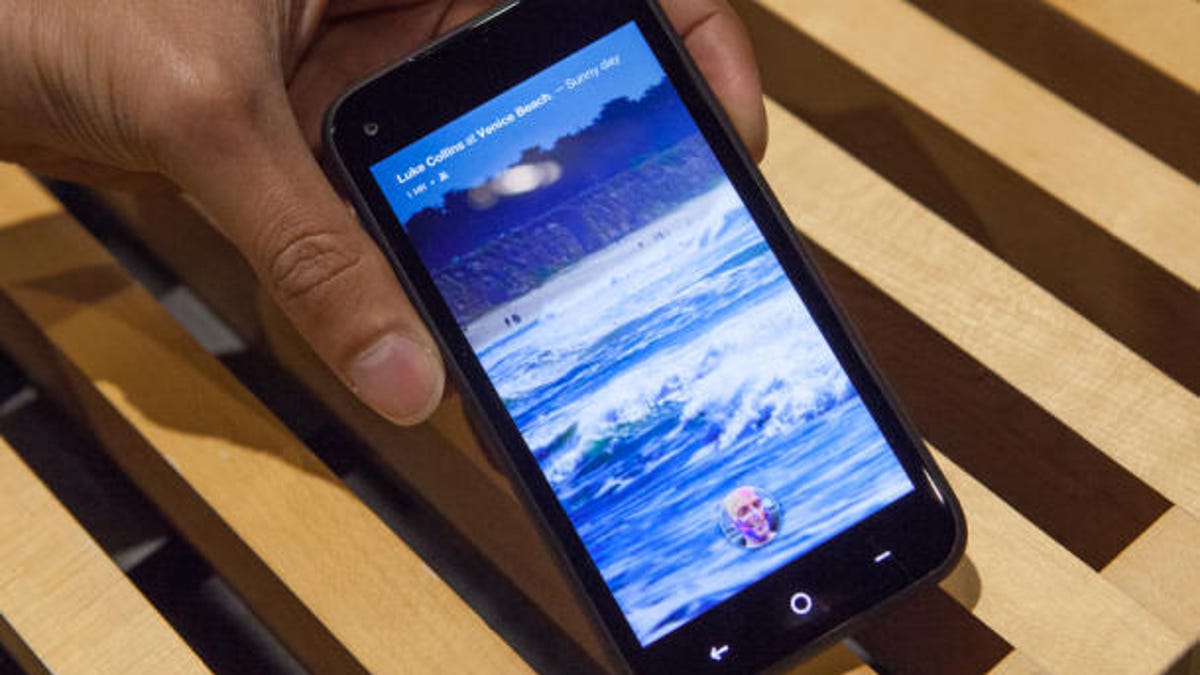Facebook Home and the next stage of iPhone vs. Android
<b>analysis</b> Facebook Home signals a new era in the war between Android and iPhone, and right now Google has the advantage.

The home computing revolution of the 1980s and '90s was defined by a battle between two titans: Apple and Microsoft. After its IPO and the introduction of the Macintosh, Apple was riding high.
The company started losing the PC market in the '90s, though. Microsoft released Windows 3.0 as a cheaper alternative to the Macintosh in 1990, but it was the release of Windows 95, which brought a comparable GUI (graphical user interface) to PCs, that really hurt Apple. And Apple also suffered from a lack of vision, owing to the absence of its visionary leader, Steve Jobs, from 1985 until 1996, when he was brought back into the fold with the acquisition of NeXT.
While Apple maintained its approach of not licensing its OS to other manufacturers (except for a brief period during Jobs' absence), Microsoft distributed its OS to multiple manufacturers. And with the help of Intel, Windows machines proliferated. It has only been in recent years that Windows has weakened, thanks in large part to Apple's iPhone and iPad.
This "open" vs. "closed" (or "fragmented" vs. "integrated") approach has been the subject of much debate, given the very different tactics Google and Apple have utilized for mobile computing. Last month, The New Yorker's Tim Wu took on Apple, claiming that without Steve Jobs, its complete control over iOS and the iPhone were becoming a detriment instead of a benefit in the marketplace.
In the end, the better your vision and design skills, the more closed you can try to be. If you think your product designers can duplicate the nearly error-free performance of Jobs over the past 12 years, go for it. But if mere mortals run your firm, or if you're facing an extremely unpredictable future, the economics of error suggest an open system is safer.
Daring Fireball's John Gruber, one of the world's most prominent Apple bloggers, took a different opinion and eviscerated Tim Wu's article, countering that he proves no correlation between market success and openness. Gruber also argued that Wu ignores the fact that Google Search has been successful, despite being a "closed" system.
The dogmatic assumption that openness correlates to success, evidence to the contrary be damned, overcomplicates the argument. 'Wu's theory is that open should generally do better than closed, unless the closed company is run by a genius.' Take the open/closed stuff out of that premise, and you're left with something like this: Companies run by geniuses should generally do better than those which are not. That sounds about right.
I bring all this back to the forefront because the open vs. closed argument has reared its head once again, thanks to Facebook. Earlier this week, the social-networking giant launched Facebook Home, an Android layer that transforms smartphones into Facebook-first devices.
Thanks to the open-source nature of Android, Facebook was able to take over Google phones without actually making one itself (though partners like HTC are releasing phones with Facebook Home preloaded). It's nothing ground-breaking, but power Facebook users will appreciate Chat Heads and quicker access to the News Feed. Just as important, it's very likely to become one of the most popular apps in the Google Play store.
The iPhone is "="">still top dog in the U.S., but Android is beating it worldwide, possibly because of its cheaper price point. Most countries don't have the subsidies that AT&T, Verizon, and others provide to U.S. consumers, which makes the price point of a smartphone far more relevant, and Android can be loaded onto cheaper devices.
Which brings me back to the open vs. closed debate. Facebook Home is, by far, the deepest customization of Android anybody has done outside of the smartphone manufacturers themselves. I suspect it won't be the last, though. What's to stop Pinterest from creating a Pinterest-friendly layer? Or Flipboard to build a layer for news consumption? How about a layer for kids? Oh wait, a Y Combinator company is already doing that!
Here's the most important part of Facebook Home (and its future kin), though: because it's a layer built on top of the OS, rather than changes to Android itself (like Amazon's Kindle Fire), it's compatible with Google's Android updates, preventing further fragmentation. Layers like Facebook Home are meant to work across devices.
Android has always offered more flavors to consumers than the iPhone's iOS, but now that pallet has expanded and will continue to expand. And while I still consider iOS a slightly superior OS in terms of user experience and apps, Android has a phone for every type of user, from the price-conscious one to the high-end user (the Galaxy S4 is one hell of a device).
I don't claim to know whether open vs. closed, or fragmented vs. integrated, is a better business approach. Both have their merits, and clearly you can build billion-dollar companies with both philosophies. But business moves in cycles, and right now the open approach is gaining momentum. I believe Facebook Home signals a new era in the battle between iPhone and Android, one that gives Google the advantage.
Your move, Apple.

